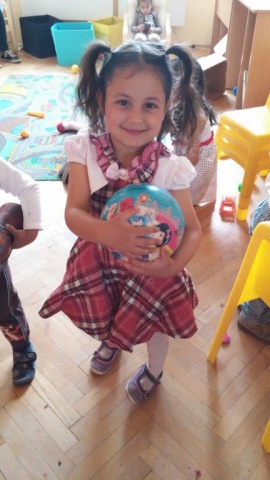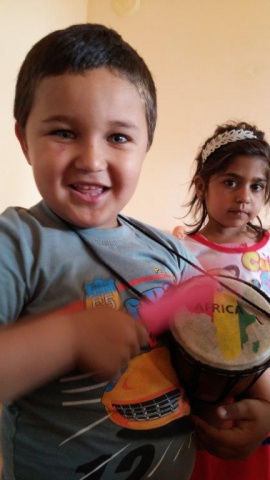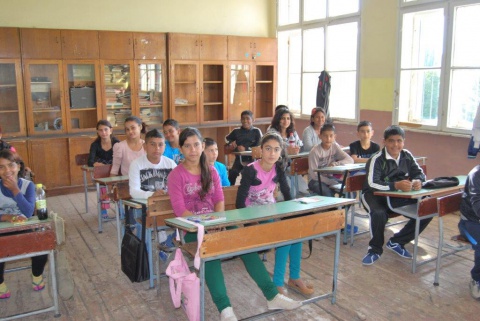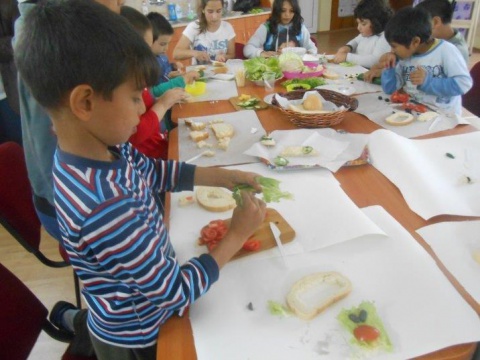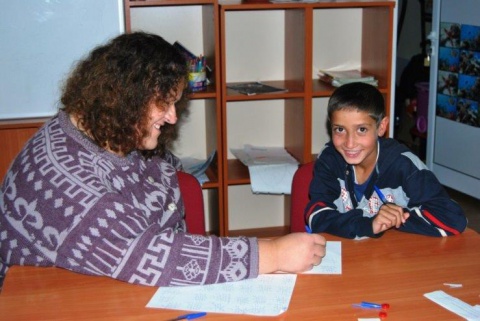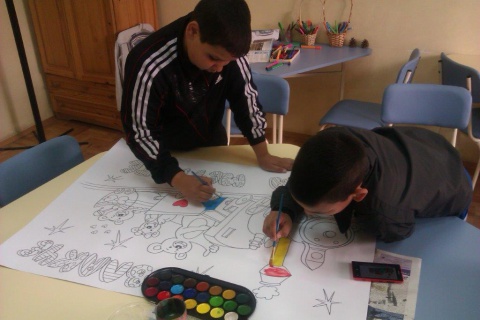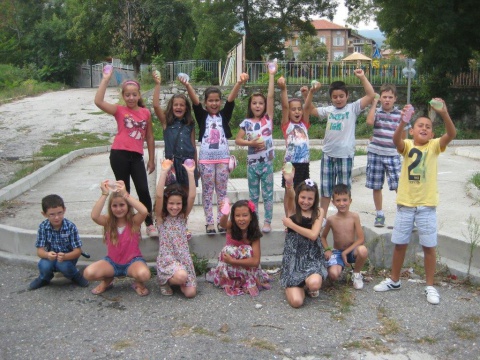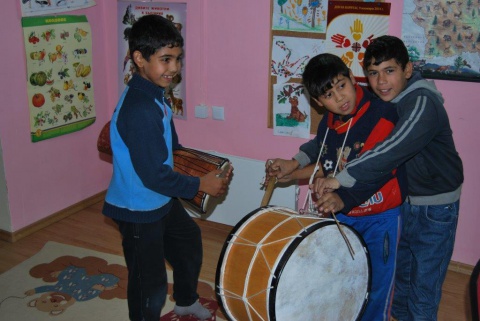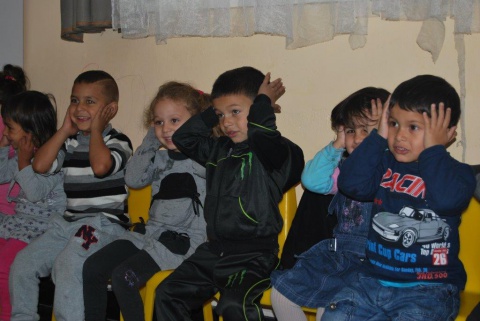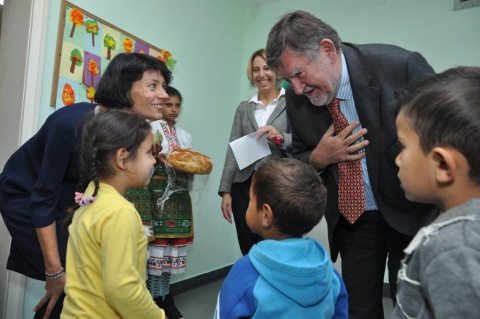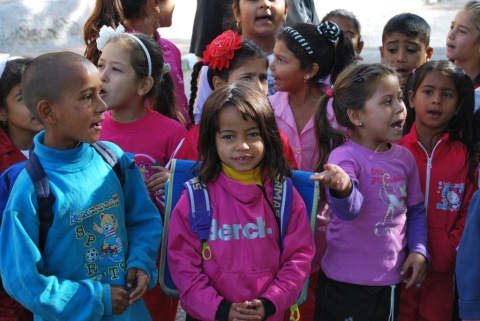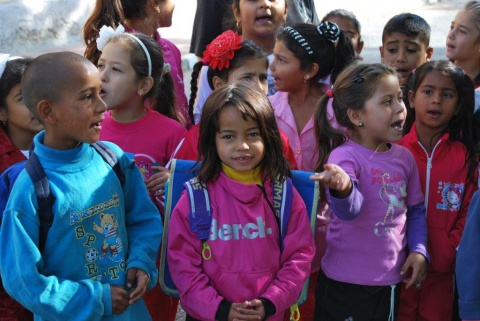
“Little Mila* jumps joyfully around me, as I smile to the dozens of children playing and shouting in the centre. She hands me her teddy bear and tells me its story in perfect Bulgarian. Mila is a happy, vibrant, smart and outgoing five-year old, who, as the educators at the centre recount, could barely speak Bulgarian a year ago, when she first started visiting the institution”, says Laura Gyurova, a H. Stepic CEE Charity member on her visit to the Day Care Centre (DCC) in Fakulteta, an extremely poor Romani neighbourhood in eastern Sofia, just a few kilometers from the centre of Bulgaria’s capital.
The Charity is supporting four day-care educational centres of Caritas in Banya, Kuklen, Malko Tarnovo and Sofia, where around 200 children from different age groups receive educational, psychological, sanitary and emotional help and guidance. They all share dire fates such as having unemployed parents or parents abusing alcohol or substances. Also, families quite often move abroad for some time in search for better living conditions. In many cases, the children do not attend school during that time and therefore have to repeat classes and generally have a lot of catching-up to do once back in Bulgaria.
A great part of the children with Romani background are not fluent in Bulgarian and therefore face substantial difficulties with their integration into the educational system and later on into society. They are practically predestined of falling out of the educational system without even having been properly in contact with it. This is where the DCCs step in, evening out the children’s considerable gaps by teaching Bulgarian and also by conveying social skills. Furthermore, the centres provide their fosterlings with warm and healthy meals and supply them with hygienic materials and access to sanitary facilities, which many of them lack in their settlements.
The four DCCs use a proven method of supplementing the existing educational system and are slowly but surely working towards reducing the illiteracy rate. By educating those children, the pupils themselves, and thereby also their following generations, are given a fair chance of escaping their otherwise predetermined life in poverty and illiteracy. Only through sustainable education, the core aim of the Charity, will these minorities be able to find employment and life above the poverty line.
* Name changed due to data privacy reasons.
